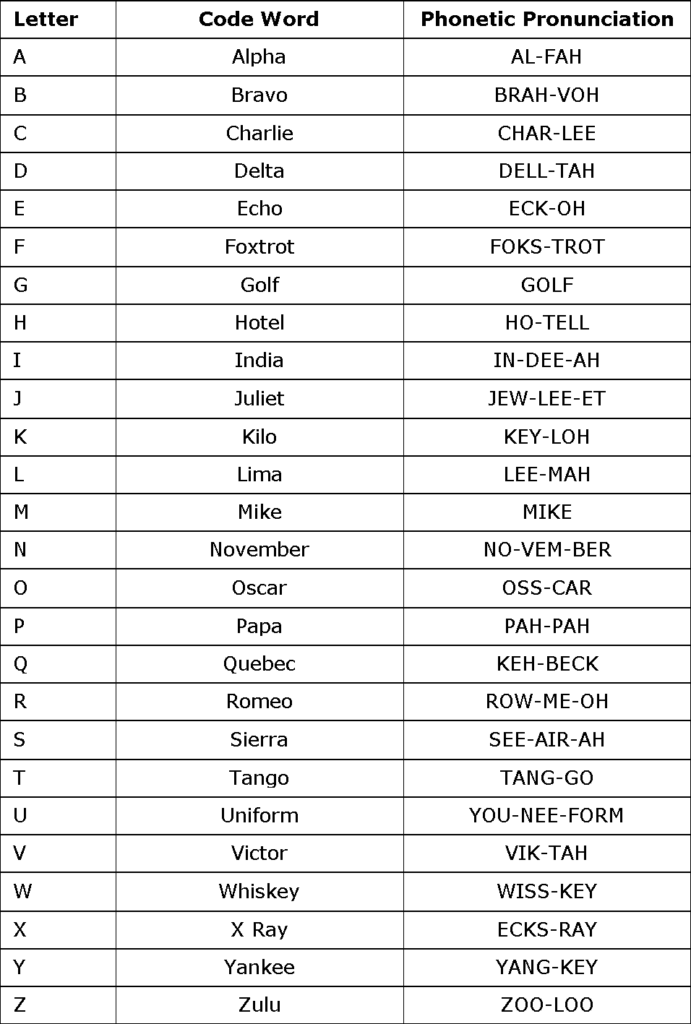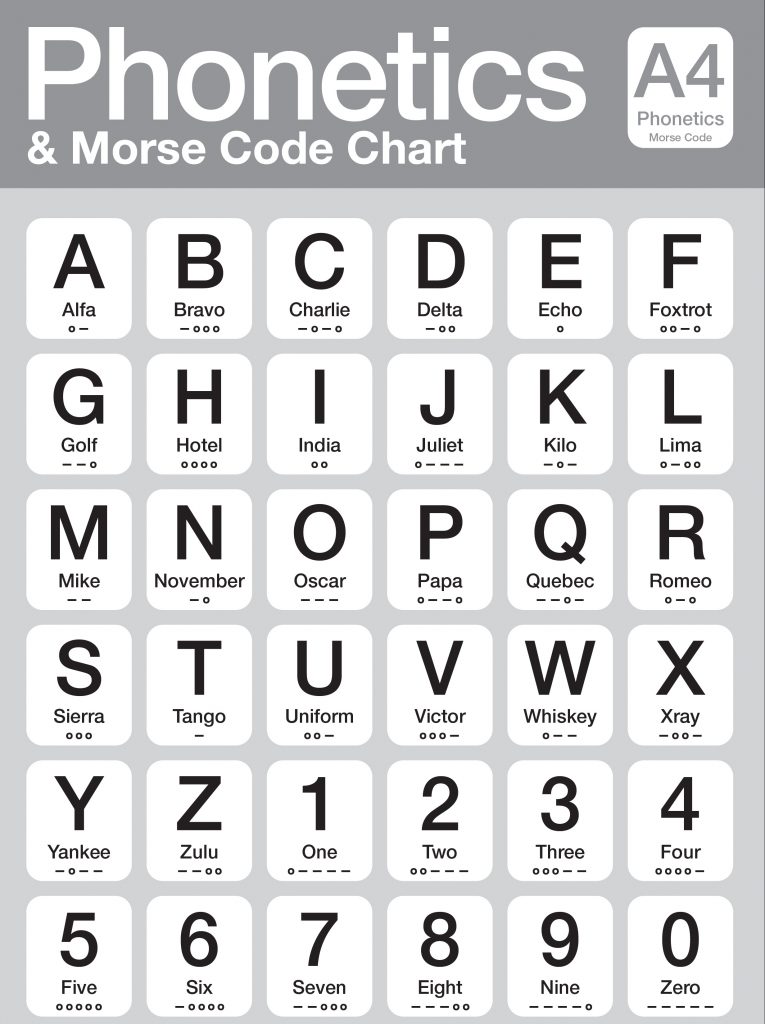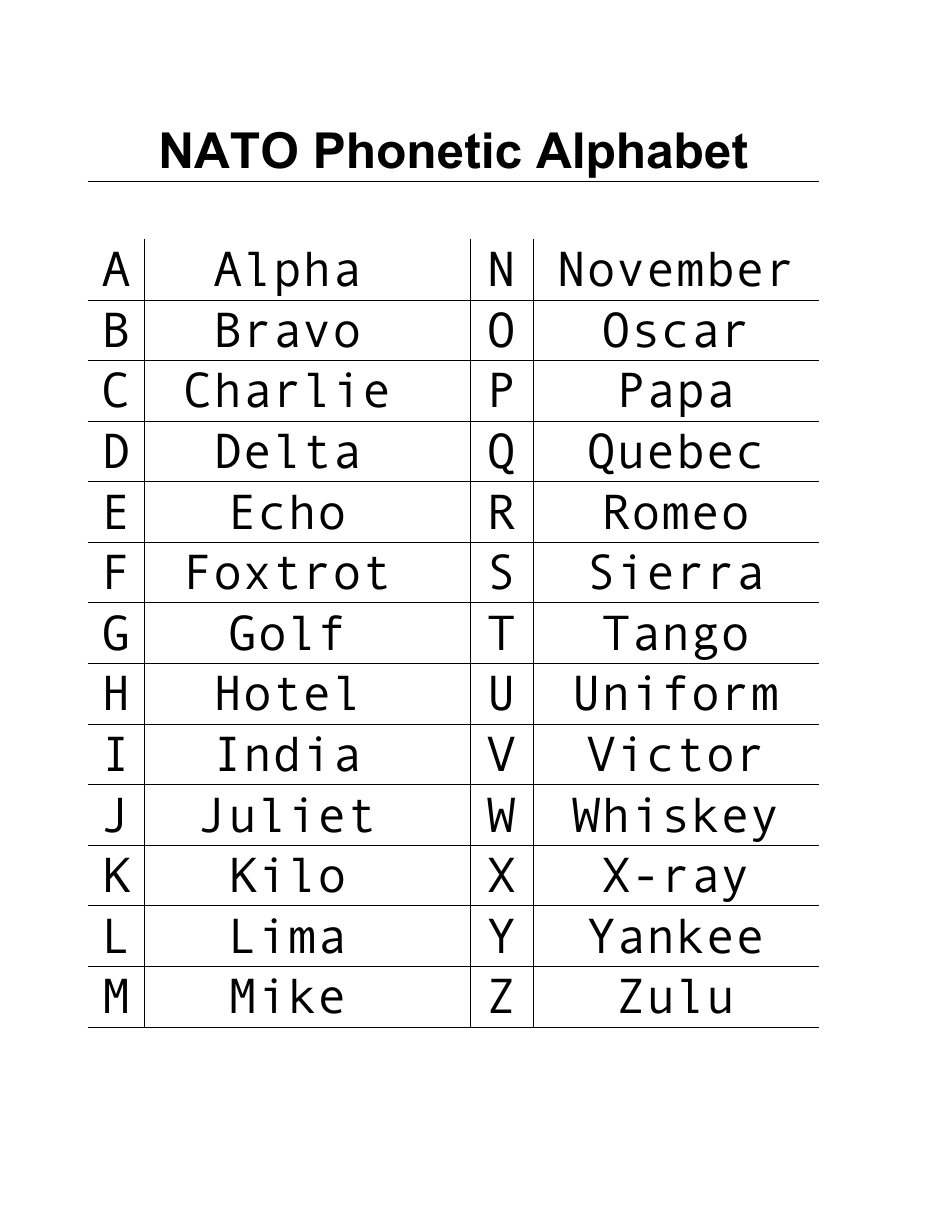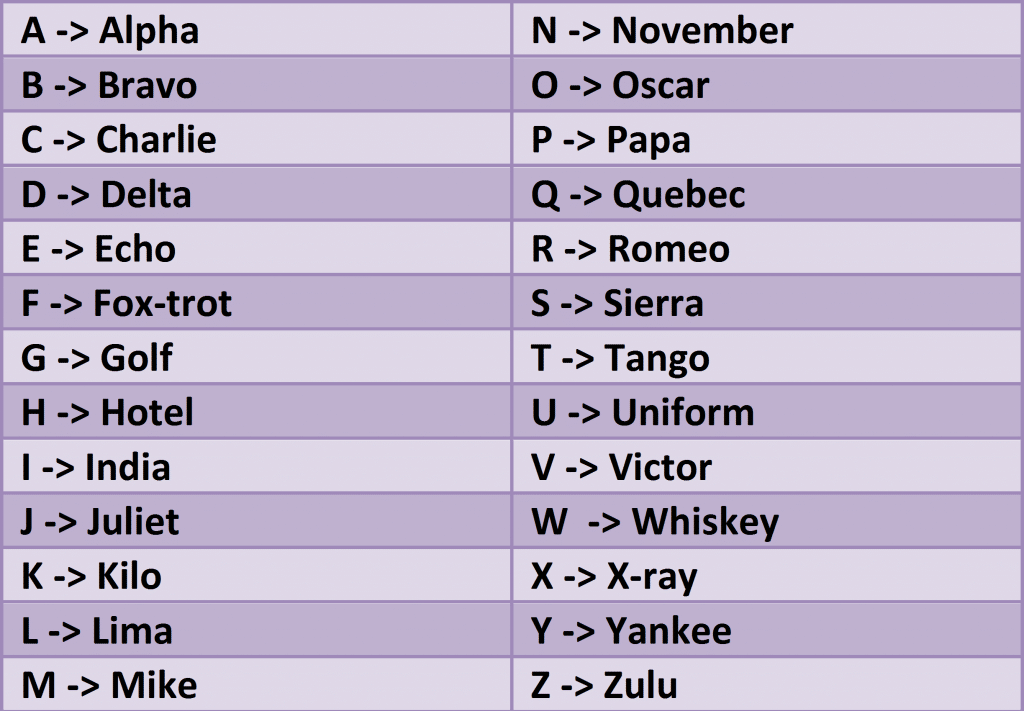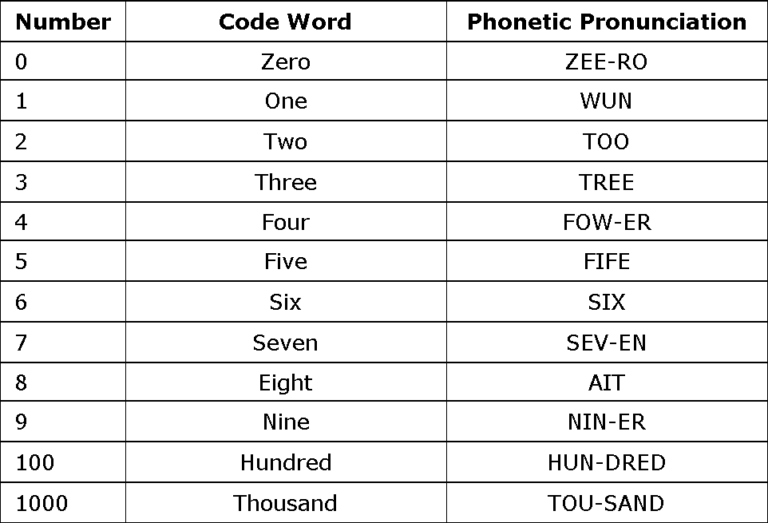The NATO Phonetic Alphabet is a system used to spell out words and communicate messages over radio communications or telephone lines. It was developed to ensure clear and accurate communication, especially in situations where voice transmission may be unclear or distorted. If you’ve ever seen a war movie or spoken to someone in the military, you may have heard phrases like “Alpha Bravo Charlie” or “Foxtrot Tango Sierra.” These are examples of the NATO Phonetic Alphabet in action.
The NATO Phonetic Alphabet consists of a series of words, each associated with a specific letter of the alphabet. For example, the word “Alpha” represents the letter “A”, “Bravo” represents “B”, and so on. By using these standardized words, clarity and understanding are enhanced, especially concerning letters or numbers that may sound similar.
The NATO phonetic alphabet is widely used in various fields, including aviation, military operations, law enforcement, and emergency services. It enables effective communication between different agencies and organizations, regardless of language barriers or technical limitations. The use of standardized words reduces the chances of miscommunication and ensures that messages are relayed accurately.
The NATO Phonetic Alphabet was first introduced by the International Civil Aviation Organization (ICAO) in the 1950s. It was primarily designed for aviation communications, where clarity and accuracy are vital for the safety of pilots, air traffic controllers, and passengers. Over time, the use of this alphabet has expanded to other sectors due to its effectiveness.
The NATO Phonetic Alphabet is not only practical but also fascinating. Many people find it intriguing to learn how each letter of the alphabet is represented by a specific word. It adds a sense of mystery and intrigue to otherwise ordinary communication. In addition, understanding the NATO Phonetic Alphabet can be useful in various situations, such as spelling out names or addresses over the phone or radio.
Here is the complete NATO Phonetic Alphabet chart for reference:
• Alpha
• Bravo
• Charlie
• Delta
• Echo
• Foxtrot
• Golf
• Hotel
• India
• Juliet
• Kilo
• Lima
• Mike
• November
• Oscar
• Papa
• Quebec
• Romeo
• Sierra
• Tango
• Uniform
• Victor
• Whiskey
• X-ray
• Yankee
• Zulu
Learning the NATO Phonetic Alphabet can be an engaging and fun activity. You can challenge your friends or colleagues to spell out words using the NATO phonetic words. It not only improves your communication skills but also adds an element of excitement to everyday conversations.
Furthermore, the NATO Phonetic Alphabet can be a useful tool for individuals involved in professions that require clear and precise communication, such as customer service representatives, call center agents, or dispatchers. It ensures that information is transmitted accurately, reducing the chances of misunderstandings or errors.
So, if you’re interested in improving your communication skills or simply want to learn something new, consider familiarizing yourself with the NATO Phonetic Alphabet. It’s a practical and engaging way to enhance your ability to convey information accurately and effectively.
Whether you have a passion for aviation, military history, or simply enjoy expanding your knowledge, the NATO Phonetic Alphabet is a valuable tool to have in your communication arsenal. By mastering this alphabet, you not only increase your proficiency in relaying information but also gain a deeper understanding of global communication standards and practices.
In conclusion, the NATO Phonetic Alphabet is an essential system that enables clear and accurate communication, particularly in sectors where precision is crucial. Learning this alphabet can be an exciting and engaging experience, enhancing your communication skills and allowing you to effectively convey information in challenging situations.
